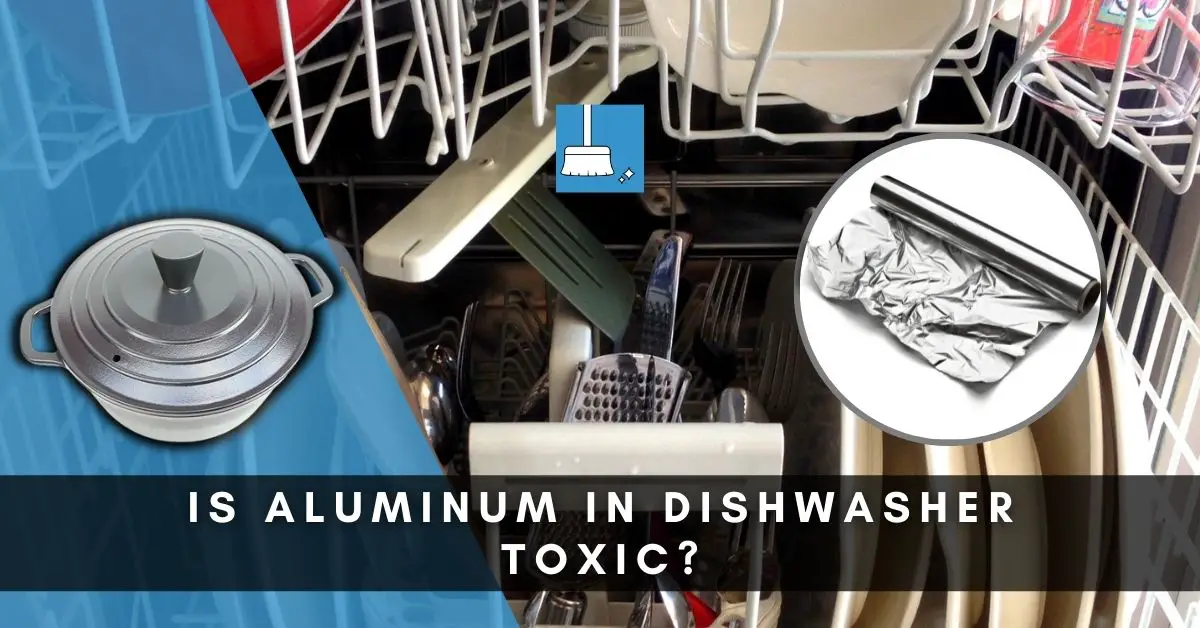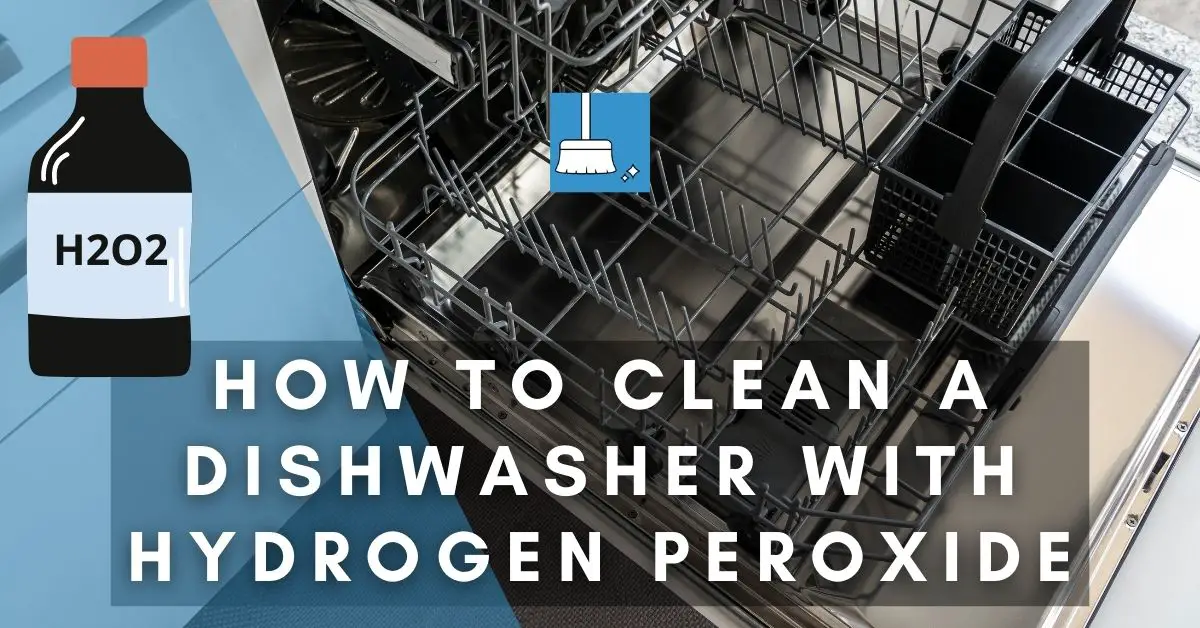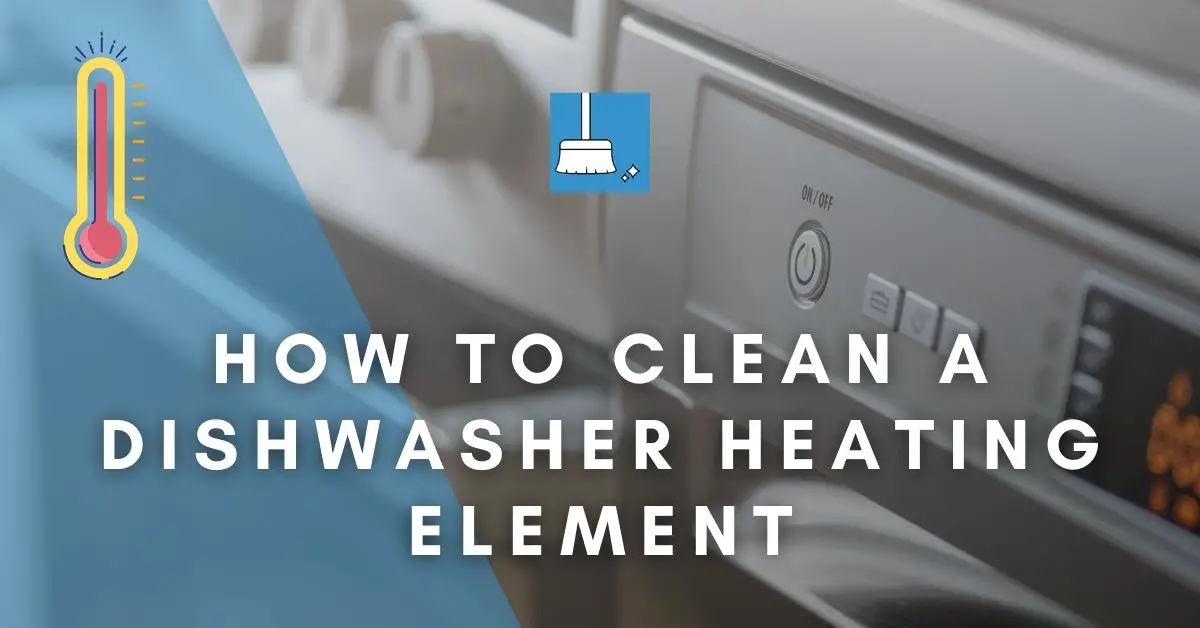If you have ever washed aluminum cookware in a dishwasher, then you know it changes color and looks unattractive. But does that make it toxic? Is it dangerous to continue cooking with that aluminum cookware?
In this article, we’ll answer this question in detail and explain in simple terms why your aluminum changes that much after going through a dishwasher.
We will also give simple methods of cleaning aluminum cookware safely and taking care of it.
Is Aluminum in Dishwasher Toxic?
Washing your aluminum cookware in a dishwasher does not pose any health risk to you. It doesn’t make your cookware or the dishwasher itself toxic.
Aluminum cookware becomes black or has white spots all over it when washed in a dishwasher because of the hot water in the dishwasher and the kind of detergent it uses.
Dishwasher detergents have chlorine and are high in alkaline so they corrode the aluminum by oxidizing it. This is more like removing the protective layer of aluminum which may make your aluminum cookware black, spotted, and ugly, but it is still safe to use.
The protective layer removed just means your aluminum is more prone to corrosion. And this discoloration can even be fixed. You just need to ensure you don’t put the aluminum into the dishwasher again.
Things That Dishwasher Does to Your Aluminum Cookware
1- Dulls the Cookware
Dishwashers make your aluminum cookware look dark and dull because the dishwasher detergent eats into the surface. It looks like there’s a haze on the cookware covering its bright and shiny finish. Your aluminum may appear to be dull grey.
2- Removes Its Anodized Finishing
Aluminum reacts with other substances when in contact, so to avoid this aluminum cookware gets anodized.
A series of baths by coating it in a protective layer of oxide makes the aluminum surface hard, corrosion-resistant, and durable. This means there’s less chance of aluminum leaching into your food or your cookware corroding. (Source)
Putting your aluminum cookware in a dishwasher changes this. The anodized layer is slowly removed over time and your cookware is more likely to corrode.
If the aluminum isn’t previously anodized, the corrosion happens faster.
3- Makes it Sticky
Anodized aluminum cookware is known to be non-sticky. When put into the dishwasher and this protective layer is tampered with, the cookware becomes sticky and this makes cooking and frying difficult.
4- Get Discolored
The dishwasher will not only dull the finish of your aluminum cookware, but sometimes it blackens it or put white spots on it, which can be tough to get rid of.
These white spots appear powdery and may get into your food as you cook. It may even affect the taste of the food.
Are There Other Causes of Aluminum Discoloration than a Dishwasher?
Even if you don’t wash your aluminum cookware in the dishwasher, it could still get discolored unless you are careful.
Let’s take a look at some of the other causes so you can avoid them.
1- Hard Water
Because of its high mineral content, hard water can discolor your aluminum if left inside for a long time or allowed to dry in it.
Hard water has a high content of calcium and magnesium which can leave white chalky spots on your aluminum cookware.
You can avoid this by drying your aluminum with a towel after cleaning and ensuring water isn’t left inside it for a long time. Don’t soak your aluminum cookware if you are not sure of the nature of the water being used.
2- Storage
If the aluminum is non-anodized, it is prone to scratches, corrosion, and reactions. So if stored for a long time, or with other cookware, it could oxidize and get discolored.
3- Alkaline Foods
Highly alkaline Foods and acidic foods, like some fruits, vegetables, and dairy products can cause aluminum to discolor when cooked.
The aluminum reacts with these foods and begins to leach into them. This means the coating on the aluminum also wears off and oxidation occurs.
Safest Ways to Clean Aluminum
Dishwashers are a no-no for aluminum and even some dish detergents contain materials that are not good for our aluminum cookware.
How do we clean them then? Below are simple ways of cleaning aluminum without causing damage or discoloring it.
Method 1: Using Dish Soap & Lemon
Liquid dish soaps are good for cleaning aluminum and will not discolor them.
YOU’LL NEED
1- Lemon juice
2- Dish soap
3- Sponge
4- Wooden spatula
5- Water
STEPS
STEP 1: After using your aluminum cookware to cook, let it cool down. Don’t wash it while it’s still hot. Then, pour some water inside and add some drops of liquid soap (Just enough to get the water to foam).
STEP 2: Allow the warm soapy water to sit in the aluminum for about 5 minutes. This will break down the grease and get stuck-on food to dislodge easily.
STEP 3: Wash the aluminum utensil with a soft sponge, in and out. Don’t use abrasives as they can damage your aluminum cookware.
STEP 4: Use a wooden spatula to scrape off food remnants that are still stuck on the aluminum.
Warning: Using a metal or iron spoon can scratch your aluminum.
STEP 5: Pour the now dirty soapy water away. If the aluminum is all clean and shiny, just rinse it with water and dry it with a towel. But if you spot some discoloration, burnt marks, or stains, proceed to the remaining steps.
STEP 6: Make a lemon solution by adding 2 tablespoons of lemon juice to every quart of water and pouring it into your aluminum utensil.
STEP 7: Bring the solution to a boil and turn off the heat. By now, some color would have returned to your aluminum as it boils and loses its discoloration.
STEP 8: After it cools down, pour the solution away and wash your aluminum with some soap and water. Rinse and dry.
Method 2: Using Baking Soda & Vinegar
This method is for very dirty aluminum cookware with extensive discoloration and burn marks.
YOU’LL NEED
1- Baking soda
2- Vinegar
3- Water
4- Sponge
5- Dish soap
6- Towel
STEPS
STEP 1: Make a baking soda paste by adding some vinegar to the baking soda powder. Make it a thick paste.
STEP 2: Spread the baking soda paste on the aluminum utensil and let it sit for about 30 minutes. You can let it sit for longer if the stains demand it.
STEP 3: Use a damp sponge to scrub the aluminum, rubbing the paste against its surface. Do this until you have scrubbed the whole surface.
STEP 4: Rinse the aluminum with clean water and repeat the process if there are still discolorations or stains in some areas.
STEP 5: After rinsing, use warm soapy water and a soft sponge to wash the aluminum pan. Then rinse with clean water.
STEP 6: Dry the aluminum with a soft towel and store it appropriately.
Aluminum Foil in Dishwasher for Water Stains
Using aluminum foil in your dishwasher is a solution to cutlery tarnish. Here is how to use the hack:
1- Crumple aluminum foil into a ball and put it into the cutlery compartment of your dishwasher.
2- Add your dishwasher detergent and run your dishwasher like you usually do. You don’t need to do anything extra for this to work.
When it’s done, check your cutleries for the results, you’ll be amazed at the difference you’ll notice.
The aluminum foil itself is not the magic wand, but the baking soda properties of the dishwasher detergent react with the foil and create a chemical reaction that lifts silver sulfide (also known as tarnish) from cutlery.
There are Aluminum Safe Dishwasher Detergents
We have discussed several reasons why aluminum shouldn’t be washed in a dishwasher.
But if you prefer dishwashing to other methods, there are less harsh dishwasher detergents, that you can use. You can find these detergents easily and they are mostly plant-based so it’s all-natural and without harsh chemicals that can harm your aluminum cookware.
Many times these detergents don’t have fragrance or dyes, and most importantly, chlorine bleach.
Even though handwashing your aluminum cookware is still the best option, these dishwasher detergents will treat your aluminum well.
Can You Put Aluminum Baking Trays in the Dishwasher?
Even if the baking trays are anodized, the hot water and harsh detergent in the dishwasher can break them down over time and damage your trays. Other cookware in the dishwasher can also nick your baking trays here and there, reducing the durability of their coating.
If you think your aluminum baking trays are well anodized though and very durable, and there’s no chance of the coating wearing off, no problem.
If the aluminum baking trays are not anodized, don’t even try putting them in a dishwasher. They will turn black, dull, ugly, and corrode. They will still be safe to use, but you won’t like their sight.
Final Thoughts!
You can use your aluminum cookware for many years without it corroding, becoming dull, or changing color. You just have to know how to care for it well and we have talked about this in detail in the article.
The cleaning methods explained are simple and the materials needed are easy to get.
Although dishwasher detergents are too harsh for aluminum cookware, there are less harsh ones that you can opt for if you love washing with dishwashers. These soaps are soft, gentle, and yet very effective.





